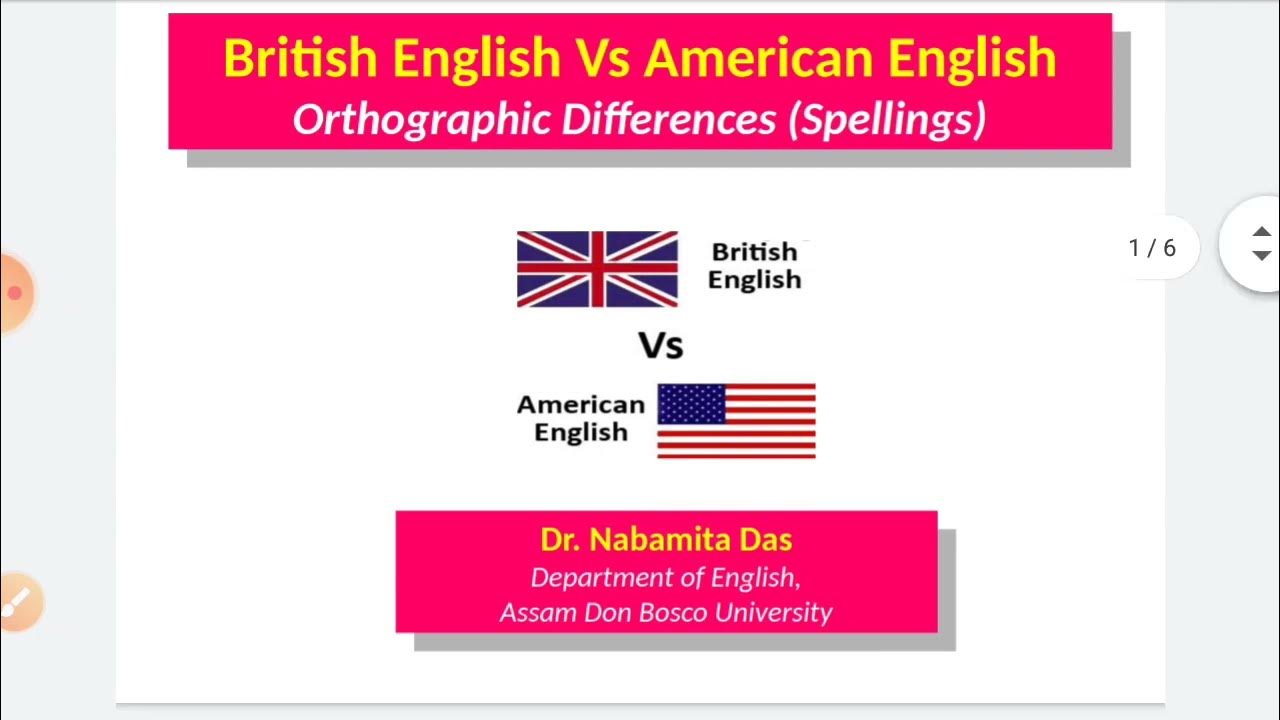perbedaan penggunaan when dan while dalam bahasa inggris
Summary
TLDRThis video script discusses the nuanced differences between the English words 'when' and 'while'. It explains that 'when' is used to describe an event happening directly before another event, while 'while' is used to describe an ongoing event occurring simultaneously with another. Examples are provided to illustrate these concepts, such as 'when John was skiing, he broke his leg' and 'I visited Paris while I was in France'. The script encourages viewers to practice using these words correctly and to engage by commenting with their own sentences.
Takeaways
- 📝 The video discusses the correct usage of the words 'when' and 'while' in the English language.
- 🕒 'When' is used to talk about an event that happens directly before another event, whereas 'while' is used to describe an ongoing action during the time another event occurs.
- 🌐 The script provides examples to illustrate the use of 'when', such as 'Wiljon was skiing when he broke his leg', which indicates an action that happened during another ongoing action.
- 🎯 'While' is used to denote that something is happening at the same time as another action, as in the example 'I visited Paris while I was in France', indicating simultaneous actions.
- 🔄 The difference between 'when' and 'while' is emphasized, with 'when' often followed by the simple past tense and 'while' by the present continuous tense.
- 📖 The script suggests that viewers practice using 'when' and 'while' by providing their own sentences in the comments section.
- 👍 The video encourages viewers to like, comment, subscribe, and click the bell button for more English learning content.
- 🗣️ The speaker uses a conversational tone to explain the nuances of 'when' and 'while', making the lesson more accessible.
- 📚 The video is part of a series on English language learning, specifically focusing on the use of conjunctions.
- 🎓 The educational content is aimed at helping viewers improve their English skills, particularly in understanding the correct use of time-related conjunctions.
Q & A
What is the main topic discussed in the script?
-The main topic discussed in the script is the correct usage of the words 'when' and 'while' in the English language.
What is the difference between 'when' and 'while' as discussed in the script?
-The script explains that 'when' is used to talk about an event that happens directly before another event, while 'while' is used to discuss an event that is happening at the same time as another event.
What is the significance of the phrase 'Deadly jadi untuk membicarakan kejadian' in the context of the script?
-The phrase seems to be a typographical error or misinterpretation. It should likely be 'directly, so to discuss an event', emphasizing the immediacy of the event before another event when using 'when'.
Can you provide an example from the script that illustrates the use of 'when'?
-Yes, the script provides the example: 'When I got home, I did my homework.' This shows that 'when' is used to indicate that one event (getting home) directly leads to another (doing homework).
How is 'while' used in the provided script?
-The script uses 'while' in the example: 'I visited Paris while I was in France.' This indicates that the speaker was visiting Paris during the time they were in France.
What is the advice given for using 'when' and 'while' correctly?
-The script advises to use 'when' for events that happen directly before another and 'while' for events that are ongoing at the same time as another event.
What is the role of the present continuous tense after 'when' as mentioned in the script?
-The script mentions that after 'when', the present continuous tense can be used to indicate an action that is happening at the same time as another action.
What is the alternative to 'while' suggested in the script?
-The script suggests using 'when' as an alternative to 'while' in certain contexts, particularly when discussing events that are happening at the same time.
How does the script encourage interaction from the audience?
-The script encourages the audience to like, comment, and subscribe, and to click the bell icon for learning English. It also invites them to provide their own sentence examples in the comments.
What is the purpose of the script according to the speaker?
-The purpose of the script is to teach English, specifically focusing on the correct usage of 'when' and 'while', as indicated by the speaker's invitation to learn English 'only at LC'.
Outlines

Esta sección está disponible solo para usuarios con suscripción. Por favor, mejora tu plan para acceder a esta parte.
Mejorar ahoraMindmap

Esta sección está disponible solo para usuarios con suscripción. Por favor, mejora tu plan para acceder a esta parte.
Mejorar ahoraKeywords

Esta sección está disponible solo para usuarios con suscripción. Por favor, mejora tu plan para acceder a esta parte.
Mejorar ahoraHighlights

Esta sección está disponible solo para usuarios con suscripción. Por favor, mejora tu plan para acceder a esta parte.
Mejorar ahoraTranscripts

Esta sección está disponible solo para usuarios con suscripción. Por favor, mejora tu plan para acceder a esta parte.
Mejorar ahoraVer Más Videos Relacionados

Language Transfer Complete Spanish Lesson 04 enhanced 50p

English Conversation Podcast—Job Interview (Mr. Bob Kampung Inggris Podcast)

Orthographic Differences II American English Vs British English

6 confusing words - small & little, big & large, tall & high

CAN and CAN'T: the importance of Weak Forms

WH Questions (Aula de inglês)
5.0 / 5 (0 votes)
